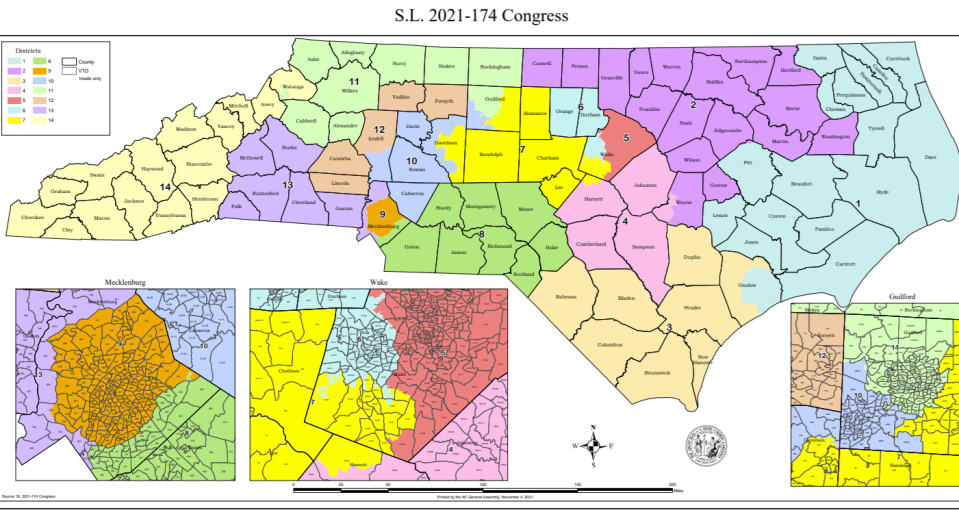North Carolina Supreme Court orders redrawing of congressional map
North Carolina's Supreme Court has ordered legislators to redraw their congressional map, overturning a lower court's decision and declaring the map "an unconstitutional partisan gerrymander."
"We conclude that claims asserting that congressional and state legislative districting plans enacted by the General Assembly are unlawful partisan gerrymanders that violate the free elections clause, the equal protection clause, and the freedom of assembly clause," the court wrote in its ruling.

North Carolina is the third state ordered by the courts to redraw its lines. A federal court struck down Alabama's congressional map, claiming a racial gerrymander, and Ohio's state supreme court found the enacted map to be an extreme partisan gerrymander. All of the maps were passed by GOP legislatures.
North Carolina's Republican-led legislature has until February 18 to submit new congressional and state legislative maps to the court. Plaintiffs, which include the League of Conservation Voters' North Carolina (NCLCV) chapter and a group of North Carolina voters, may also submit maps. If the legislature misses the deadline, a trial court will select a plan.
"Today the Supreme Court ruled that our state constitution guarantees North Carolinians the right to elect their leaders in free and fair elections, something the General Assembly denied them when they drew their unconstitutional gerrymandered maps. This is the justice we sought when we filed this lawsuit," said NCLCV executive director Carrie Clark.
The court will adopt "compliant" maps on February 23, weeks before the state's May 17 primary election date. The candidate filing period begins February 24.
The court wrote that a new map "must not diminish or dilute any individual's vote on the basis of partisan affiliation."
"When a redistricting plan systematically makes it harder for one group of voters to elect a governing majority than another group of voters of equal size– the General Assembly unconstitutionally infringes upon that voter's fundamental right to vote," the court writes.
The congressional map originally enacted in North Carolina could have given House Republicans a net gain of two seats. It would have created 10 Republican-leaning seats, three Democratic-leaning seats and one competitive seat. Currently, Republicans hold eight seats and Democrats hold five seats.
North Carolina also gained an additional congressional district due to its population growth.
This is the third time in less than a decade that the state has litigated its district lines. The state's congressional lines changed in 2016 and 2019, after courts found partisan gerrymandering "beyond a reasonable doubt."
All four Democratic judges on the North Carolina Supreme Court ruled in favor of striking down the maps, while all three Republican judges dissented.
Chief Justice Paul Martin Newby wrote in his dissent that the court's decision violates separation of powers by "placing responsibility for redistricting with the judicial branch, not the legislative branch."
"By choosing to hold that partisan gerrymandering violates the North Carolina Constitution and by devising its own remedies, there appears to be no limit to this court's power," he writes.
Iconic London jazz club nurtures young musicians by donating instruments to kids
Queen Elizabeth II to celebrate seven decades on the British throne at Platinum Jubilee
Draft order under former President Trump considered seizing 2020 election voting machines

